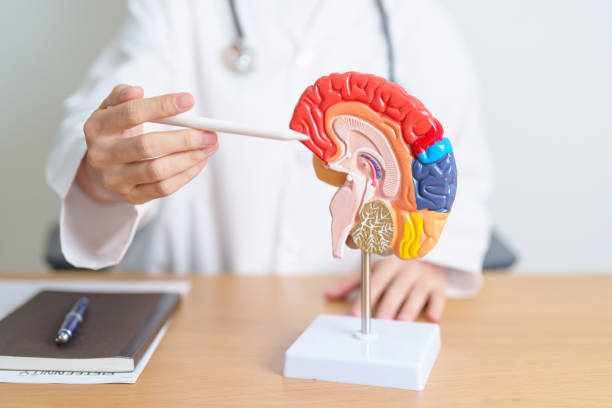Understanding Ulcerative Colitis: A Comprehensive Guide
Ulcerative colitis is a chronic inflammatory bowel disease (IBD) that affects the large intestine, or colon. This condition can cause a range of debilitating symptoms, including abdominal pain, diarrhea, rectal bleeding, and fatigue, significantly impacting an individual’s quality of life.

While there is no known cure for ulcerative colitis, advancements in medical research and treatment options have provided hope for millions of people living with this challenging condition. In this comprehensive guide, we’ll explore the causes, symptoms, diagnosis, and various treatment approaches for ulcerative colitis, empowering you with the knowledge to better understand and manage this complex disease.
What is Ulcerative Colitis?
Ulcerative colitis is an inflammatory bowel disease (IBD) that primarily affects the innermost lining of the large intestine (colon) and rectum. Unlike Crohn’s disease, another type of IBD, ulcerative colitis is typically confined to the colon and does not affect other parts of the digestive system.
The inflammation in ulcerative colitis can cause the formation of ulcers or sores in the lining of the colon, leading to various symptoms that can range from mild to severe. The severity and location of the inflammation can vary from person to person, and symptoms may come and go in cycles, with periods of remission interspersed with flare-ups.
Causes of Ulcerative Colitis
While the exact cause of ulcerative colitis is not fully understood, researchers have identified several potential contributing factors:
Immune System Dysfunction: Ulcerative colitis is believed to be an autoimmune disorder, where the body’s immune system mistakenly attacks healthy cells in the colon, causing inflammation and damage.
Genetic Factors: Certain genetic variations may increase an individual’s susceptibility to developing ulcerative colitis. However, it’s important to note that having a family member with the condition does not necessarily mean you will develop it as well.
Environmental Triggers: Factors such as diet, stress, smoking, and certain medications have been suggested as potential triggers for ulcerative colitis flare-ups, although more research is needed to establish definitive links.
Gut Microbiome Imbalance: Emerging research suggests that an imbalance in the gut microbiome, the collection of beneficial bacteria and other microorganisms in the digestive system, may play a role in the development of ulcerative colitis and other IBDs.
Symptoms of Ulcerative Colitis
The symptoms of ulcerative colitis can vary in severity and frequency, depending on the extent and location of the inflammation in the colon. Common symptoms include:
- Abdominal Pain and Cramping: Individuals with ulcerative colitis often experience abdominal pain and discomfort, particularly in the lower abdomen.
- Diarrhea: Frequent and urgent bowel movements, often with blood or mucus, are a hallmark symptom of ulcerative colitis.
- Rectal Bleeding: The inflammation and ulcers in the colon can cause rectal bleeding, which may appear as bright red blood in the stool or on toilet paper.
- Fatigue and Weakness: The chronic inflammation and nutrient malabsorption associated with ulcerative colitis can lead to feelings of fatigue and weakness.
- Fever: In some cases, individuals with active inflammation may experience fever or elevated body temperature.
- Weight Loss: Severe cases of ulcerative colitis can lead to unintentional weight loss due to decreased appetite, malnutrition, and nutrient malabsorption.
- Dehydration: Frequent diarrhea can lead to dehydration if fluids and electrolytes are not adequately replaced.
It’s important to note that the severity and frequency of symptoms can vary greatly between individuals and may change over time, even within the same person.
Diagnosis of Ulcerative Colitis
Diagnosing ulcerative colitis typically involves a combination of medical history, physical examination, and various diagnostic tests. Here are some common methods used to diagnose the condition:
Medical History and Physical Examination: Your healthcare provider will ask about your symptoms, family history, and any other relevant medical information. They will also perform a physical examination, including an abdominal examination, to assess for tenderness or abnormalities.
Blood Tests: Blood tests may be ordered to check for signs of inflammation, anemia, or nutrient deficiencies associated with ulcerative colitis.
Stool Tests: Stool samples may be analyzed to rule out other potential causes of gastrointestinal symptoms, such as infections or parasites.
Colonoscopy: This procedure involves inserting a flexible, lighted tube with a camera (colonoscope) into the rectum and colon to inspect the lining for inflammation, ulcers, or other abnormalities. Biopsies (tissue samples) may be taken during the procedure for further analysis.
Imaging Tests: In some cases, imaging tests such as a CT scan or MRI may be performed to evaluate the extent of inflammation or to rule out other potential conditions.
Once a diagnosis of ulcerative colitis is confirmed, your healthcare provider will work with you to develop an appropriate treatment plan based on the severity of your condition and your individual needs.
Treatment Options for Ulcerative Colitis
While there is no known cure for ulcerative colitis, various treatment options are available to manage symptoms, induce and maintain remission, and improve overall quality of life. The choice of treatment will depend on the severity of the condition, the location and extent of inflammation, and an individual’s response to different therapies.
Medication Therapies
Aminosalicylates (5-ASA drugs): These medications, such as mesalamine and sulfasalazine, are often the first line of treatment for mild to moderate ulcerative colitis. They help reduce inflammation in the colon and can be taken orally or rectally.
Corticosteroids: Steroids like prednisone or budesonide may be prescribed for short-term use to quickly reduce inflammation during flare-ups.
Immunomodulators: Medications like azathioprine (Imuran) and mercaptopurine (Purinethol) work by suppressing the overactive immune response that causes inflammation in ulcerative colitis.
Biologic Therapies: These targeted therapies, such as infliximab (Remicade), adalimumab (Humira), and vedolizumab (Entyvio), are designed to block specific proteins or pathways involved in the inflammatory process.
Dietary Modifications: While there is no specific “ulcerative colitis diet,” some individuals may benefit from avoiding certain foods that exacerbate their symptoms. Working with a registered dietitian can help identify potential trigger foods and develop a personalized dietary plan.
Stress Management: Stress can trigger or worsen ulcerative colitis flare-ups. Incorporating stress-reduction techniques like meditation, yoga, or counseling may help manage stress and improve overall well-being.
Surgery: In severe cases or when other treatments are ineffective, surgery may be recommended to remove the affected portion of the colon or the entire colon (colectomy). This can potentially cure ulcerative colitis but may also lead to the need for an ostomy (surgical opening for waste elimination).
Complementary and Alternative Therapies: While more research is needed, some individuals may find relief through complementary and alternative therapies like probiotics, herbal supplements, or mind-body practices like mindfulness or hypnotherapy. However, it’s important to consult with your healthcare provider before trying any new therapies, as some may interact with existing medications or have potential side effects.
Ongoing Research and Potential New Treatments
Ulcerative colitis is an active area of medical research, with scientists and clinicians continually exploring new treatment options and potential cures. Some promising areas of research include:
Stem Cell Therapy: Researchers are investigating the use of stem cells to regenerate and repair the damaged intestinal lining in individuals with ulcerative colitis.
Fecal Microbiota Transplantation (FMT): FMT involves transplanting healthy gut bacteria from a donor into the intestine of an individual with ulcerative colitis. Early studies have shown promising results in inducing remission, but more research is needed.

Dietary Interventions: Ongoing research is exploring the potential benefits of specific dietary approaches, such as the specific carbohydrate diet or the anti-inflammatory diet, in managing ulcerative colitis symptoms.
Conclusion
Ulcerative colitis is a complex and challenging condition that can significantly impact an individual’s quality of life. However, with the right treatment approach, symptom management, and lifestyle modifications, many people with ulcerative colitis can achieve remission and live fulfilling lives.
It’s important to remember that the journey with ulcerative colitis is unique for each person, and what works for one individual may not work for another. Maintaining open communication with your healthcare team, being proactive in managing your condition, and staying informed about the latest research and treatment options are crucial steps in navigating this chronic disease.
While there is currently no known cure for ulcerative colitis, ongoing research and advancements in medical science offer hope for the future. From stem cell therapies and fecal microbiota transplantation to targeted biologic therapies and dietary interventions, researchers are continuously exploring new avenues to better understand and treat this condition.
Remember, you are not alone in your battle with ulcerative colitis. Support groups, patient advocacy organizations, and online communities can provide valuable resources, connect you with others facing similar challenges, and offer a sense of community and understanding.
Ultimately, managing ulcerative colitis requires a holistic approach that addresses not only the physical symptoms but also the emotional and psychological aspects of living with a chronic condition. By taking an active role in your treatment, prioritizing self-care, and seeking support when needed, you can navigate the challenges of ulcerative colitis with resilience and hope.
While the road ahead may not be easy, with the right mindset, support system, and commitment to self-care, you can find ways to manage your symptoms, minimize flare-ups, and embrace a life filled with purpose and joy, despite the challenges posed by ulcerative colitis.